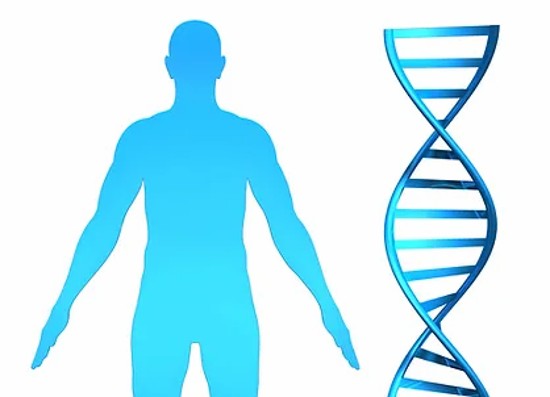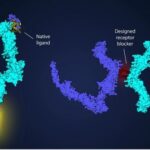Welcome back Katie Brenneman who has made numerous contributions to 21st Century Tech Blog. This is, in fact, the 18th posting she has shared with my readers. In this one, she describes how our genes play a significant role in the evolution of our species. Are genes the only determiner of health? Are there non-genetic influencers that cause mutations that can be passed along to subsequent generations? I’ll leave it to Katie to tell the story.
Genetic and Epigenetic Insights into Personal Health
Genetics is a fundamental part of our understanding of who we are as a species. Genetic variation, however, causes changes we call mutations that subsequently affect future generations. Good, bad, or ugly, mutations play a critical role in our evolution. Some genetic mutations negatively impact our health. Some affect how we process nutrition.
Genetics isn’t the lone player in our life health experience. Epigenetics has a role to play as well. Current research is uncovering nutrition-affecting mutations that play a greater role in our health, and how what we eat, where we live, and other environmental factors can play a role in altering gene expression and becoming the heritable triggering factor of mutations seen in following generations.
Genetic Mutations
Genetic mutations are not uncommon. Hundreds of genetic mutations cause a variety of effects, some well-known, others not so much. Often, people associate genetic mutations with cancers and other rare diseases, but mutations are responsible for many other conditions and observed traits. Not all are welcome. This is particularly true when it comes to nutrition and gut health. Genetic mutations are responsible for so many of the nutritional issues that a substantial portion of humans face.
How Genetics Impact Your Nutritional Needs
From a nutrition perspective, a mutation that impacts nutrient intake can lead to a complete and total lifestyle change. For instance, there are a variety of mutations that impede the body from processing proteins we ingest. Lacking the ability to absorb proteins can impact proper growth and function. A chronic lack of protein can lead to limited muscle mass, muscle weakness, low blood pressure and heart rates, and slow recovery from injuries.
Another common genetic factor so many face is related to nutrition and cholesterol. High cholesterol runs in families. It can lead to a greater likelihood of a heart attack or stroke at a young age. You can try to manage high cholesterol through lifestyle changes such as eating a low-fat diet, doing more cardio exercise, and managing your weight. Advances in DNA editing, however, may start to change the way we deal with cholesterol.
Cholesterol comes in two forms: HDL and LDL. HDL stands for high-density-density lipoproteins. LDL stands for low-density lipoproteins. When you have a blood test to check your cholesterol levels, each type is measured. Think of HDL as the good, and LDL as the bad. High HDL levels protect us from heart attacks and strokes. High LDL levels lead to the narrowing of arteries and increase the risk of heart attacks and strokes. High LDL cholesterol levels are linked to obesity which may have genetic roots. For patients with obesity, however, modifying their lifestyles can introduce epigenetics into the health equation.
How Epigenetics Affects You
What is epigenetics? It is the story of cause and effect, that modifying behaviours or changes to your environment can impact.
Epigenetics studies how behaviour and changes in the environment impact how genes work. It is proving to be an important addition to our study of our health and the role genetics plays. Epigenetic profiles, today, are being used to not only predict disease risk but also how long we will live. An epigenetic lifespan predictor called DNAm GrimAge is an epigenetic clock that can accurately predict how long we will live, barring accidents, from testing umbilical cord blood taken from a newborn.
How epigenetics impacts obesity looks at the influences of environment and lifestyle including what you eat and how that alters gene expression. Essentially, the genes in your body take regulatory cues from the environment in which you live. How they do so is heritable. That means your genetic makeup can be inhibited or activated by environmental factors.
When it comes to obesity, your diet and gut microbiota, together with environmental factors such as where you live and how sedentary you are, influence the expression of certain genes. In turn, this influence contributes to things such as cholesterol levels and how susceptible you are to various diseases.
Like genes, epigenetic mechanisms affect health. Your microbiome provides a good example of how this works. Microbiota are inextricably linked with mental and physical health. Your microbiome is shaped by who you live with, your mother’s microbiome (and how she gave birth to you), antibiotic usage, the community in which you live, as well as what you eat. Your microbiome affects gene expression. That’s why what you choose to eat can be consequential.
Developing Personalized Nutrition Plans
Diet is a strong epigenetic influencer on gene expression and mutation. Some research suggests that a healthy diet plays a role in limiting the impact of mutations, possibly even hiding their effects. As we better understand epigenetic diet influencers, it could play a role in helping us to develop customized nutritional plans that will manage genetic changes.
Aside from cholesterol, scientists are discovering all sorts of nutrition-based outcomes that are related to genetics ranging from obesity to maintaining a strict vegetarian or vegan diet. Managing a diet is complicated and a lot of different factors come into play. When you consider developing a personalized nutrition plan, therefore, here are some steps to take:
- Assess your health goals and the specific food groups that will or will not help you attain them.
- Evaluate how you can incorporate whole food sources that make up a healthy diet including fruits, vegetables, lean proteins, and essential vitamins and minerals.
- Do the math to make sure you are getting enough of the essential things your body needs.
- Plan your meals to help meet your personal health goals.
- Keep track of how your diet affects you and if you’re getting the results you want.
Customized nutrition plans can prove to be a challenge. Consider keeping a food journal and note how you are being impacted, not just in terms of weight and body mass, but also mood and happiness. Finding the right balance between the genes you inherit and the epigenetic influencers that alter gene expression is part of your journey through life and one you can, now that you have read all the above, to a great degree, own and control.









